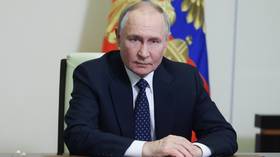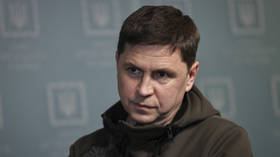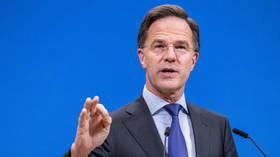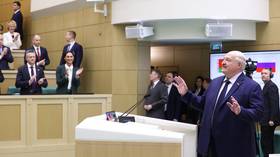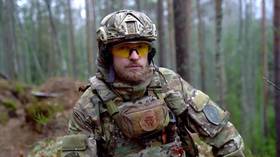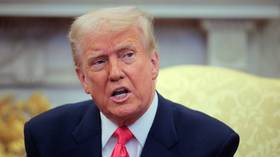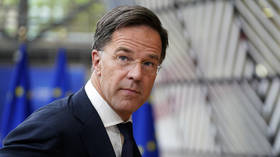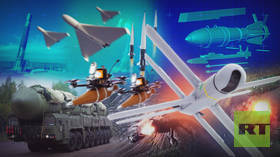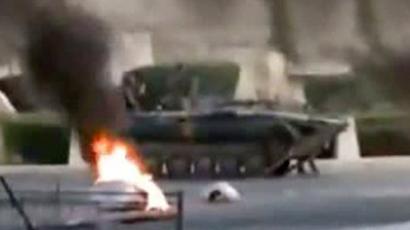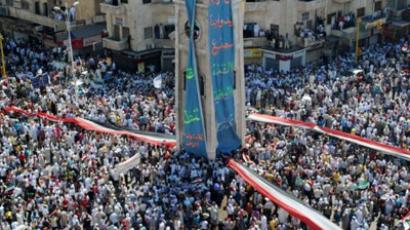Violence continues in Syria as UN Security Council argues
The fighting for the Syrian rebel stronghold of Hama continues, with the reported number of victims reaching 100. Meanwhile the UN Security Council session discussed the latest developments of the civil conflict, but failed to produce a resolution.
Elite troops of the Syrian army were sent to Hama to fight what protesters call a desperate general population and the authorities call terrorists.Syrian state news agency SANA says the rebels there have captured military depots and use the weapons, including land mines, machine guns and grenade launchers against army units.Opposition says the army is using tanks and other armor in the city, shooting at residential areas. Official Damascus denies the allegations.Anti-governmental activists state the number of people killed in the conflict over several days as high as 100. Monday’s confrontation resulted in 24 deaths, they say.The government did not publish any number of casualties, but confirmed that some officers and soldiers have been killed or wounded in the operation. The military say the troops are being targeted by sniper fire from rooftops.Several European countries and the United States pushed for a condemnation of Damascus’s actions in Hama during a UN Security Council session on Monday night.However Russia and China said they would veto such a move, while observer members Brazil, India and South Africa backed this position.Members of the Council agreed that the situation in Syria is of concern for the international community.However, Middle East political writer James Denselow says the UN can do little under the current circumstances. “The UN is looking fairly impotent at the moment, largely because of what happened in Libya,” he said. “In a sense, the Russians and the Chinese feel they were betrayed by the West. The people were pushed for Security Council resolution 1973. They thought it was about humanitarian protection, but it turned out to be about regime change – they didn’t sign up to that.”
Earlier on Monday several nations voiced condemnation of Bashar Assad’s regime over the violence in Hama. The EU announced implementing of a new round of sanctions against Syrian officials and companies. The new asset and travel freezes target five individuals, including Defense Minister Ali Habib Mahmud and head of internal security Tawfiq Younes.The ongoing conflict in Syria has drawn much criticism from the West, but so far politicians show no desire for a military intervention there like the one in Libya.Meanwhile, Canadian political analyst Michel Chossudovsky says intervention should be the last possible option in resolving the current stalemate.“If there is a military intervention is Syria, then we are in for an extended war, which goes from the Mediterranean right to the Chinese border, because then we’ll have integration of the war theaters in Afghanistan, Iraq and, of course, Palestine and Lebanon – and so we are in for a much larger war,” he said. “Let’s understand that [if there is] any kind of military intervention in Syria at this stage using the pretext of a protest movement or responsibility to protect, we’ll have devastating consequences leading to a military escalation in a vast area.”
German Minister of State at the Foreign Office Werner Hoyer said in a TV interview that foreign war rhetoric harms the opposition in Syria, because it lends credibility to the government’s statements, which say the uprising has been orchestrated from abroad.Russia’s Middle-Eastern envoy Mikhail Margelov said that an unconditional support of all Syrian opposition against Assad’s government will result in helping radical Islamists, who are strong in the country and use pro-democracy slogans to hide their true agenda.“A military intervention in Syria on the side of the opposition will not support democratic forces alone,” he said.Russia advocates limiting foreign interference in Syrian affairs and says Syrian have to resolve their domestic problems primarily through their own efforts.



